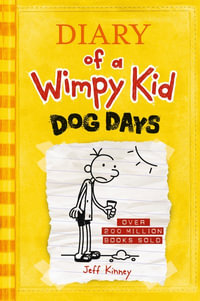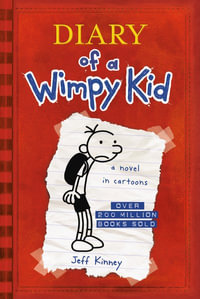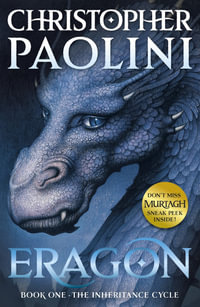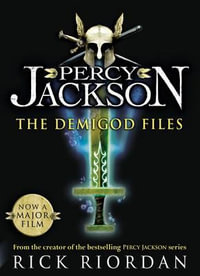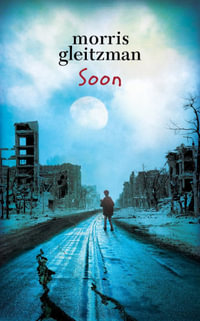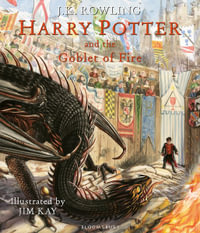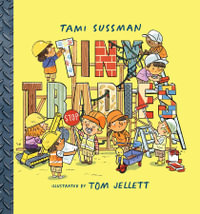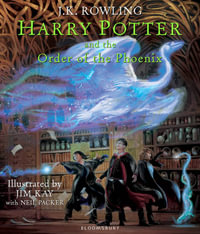
At a Glance
304 Pages
10 - 14
5 - 9
19.37 x 13.02 x 2.29
Paperback
$17.95
or 4 interest-free payments of $4.49 with
Aims to ship in 15 to 25 business days
Shortly after the Civil War, Malachy laces on his father's boots and travels to the American West to work on the transcontinental railroad that will unite the country. In addition to the challenge of the physically grueling work, Malachy also has to adjust to working with Chinese men and boys, whom he views with suspicion and contempt. Despite everything, Malachy gets by with his love for his fierce new dog, Brina, and Blind Thomas, the most hardworking and loyal railroad horse around.
But after a Chinese boy is blamed for stealing a bag of coins, Malachy begins to reconsider his prejudices-because Malachy is the real thief, and his conscience is uneasy. He begins to notice the many ways in which the Chinese workers are mistreated. And when real danger threatens, Malachy needs to find the courage to step up and do what's right.
Diane Lee Wilson's atmospheric writing vividly depicts the western landscape of America in the 1860s and draws you right in alongside Malachy-and his beloved horse and dog-as he navigates a bumpy moral terrain and discovers a friendship he never knew was possible.
Industry Reviews
"Historical fiction with relevance to issues today, this novel is nonetheless firmly grounded in its own time and place."--"School Library Journal"
"Wilson's ("Raven Speak") coming-of-age story plunges readers into the heart of Malachy's character and circumstances (of Irish heritage, Malachy, like the Chinese workers, is no stranger to prejudice). Readers will be drawn in by Wilson's eloquent and expressive writing as it details Malachy's emotional and physical struggles toward adulthood."--"Publishers Weekly"
"Wilson's vigorous, lively prose, her fascinating setting and her meticulous attention to historical detail--including the Chinese workers' customs and a blind horse named Thomas . . ."--"Kirkus Reviews"
| It was two and a half years ago, near the tail end of 1866, that I’d thrown my weight into the grand enterprise. I was still only thirteen then but big for my age, as was constantly remarked, and feisty as any Irish cockerel. I was also a know-nothing, with fists that spoke before my tongue, and for that I’m apologizing. | |
| I was rightly my father’s boy, as everyone was quick to explain; he’d made me in his own image. And when he didn’t come back from the war, I’d had to become him: I laced on his boots, shouldered his harness, and went to work to support Ma and the others. The best work at the time-with some of the highest wages, anyway-was building the Pacific Railroad, and those big tycoons were so shy of workers, they were paying the whole passage on a two-month journey west: a long sail from New York down the East Coast, a tramp across Panama, and then another sail up the opposite coast, along Mexico and California. I had my own reasons for wanting to leave the city, so I inked my name, Malachy Gormley, and climbed the gangplank. | |
| If I’d had eyes at all back then, I’d have recognized the signs of danger, beginning with the train ticket handed to me that blustery November morning in Sacramento. | |
| That ticket, a thin white square, shivered in the breeze like it was having a fit; it fairly crackled with fear. Maybe it was because the two fingers clipping it were as smooth as sausages and burnished just as red. They were middle fingers only; the other three-thumb, pointer, and pinkie-were missing, blasted, or cut away somehow. I tried not to stare. | |
| Behind the bars of the ticket window, the man owning the two fingers grumbled. "So they’s hauling up children now, is they? Heard they couldn’t keep enough men on the line." He shook his head at that sad state of affairs. "Mind you keep your wits about you," he advised, and then, sharply, which made me jump, "Well? Are you takin’ it?" | |
| I snatched the ticket, careful not to touch that angry red claw of a hand. "When does the train leave?" | |
| He jerked his whiskers toward the schedule posted behind him. "Forty-three minutes!" he barked, and waved me away. | |
| I pinned the square of paper against my palm, which was now damp with sweat, and hurried along Front Street. | |
| Though the sky hung gray and moody, and a fickle wind flapped papers and chased rubbish under wheels, the temperature, I thought, was mild for the time of year. Right away I could see that Sacramento was hardly at all like New York City. Sure, they both had their rivers, but here the streets seemed wider and not as crowded. People hurried but they didn’t shove. Not wanting to get lost, I strolled in a strict pattern of right turns, exploring the businesses and alleys of the immediate district, regularly returning to check on the waiting locomotive. | |
| It was a wonderment to behold, oily black trimmed in gleaming brass, and every part on it oversize: the spoke wheels, the jutting smokestack, the round eyeball of a headlamp. Another monster, it was, like the ships I’d been on-monsters that swallowed up humans and sped them across the earth and sea. At least this would only be one day’s travel and not fifty-eight. I turned on my heel, fairly jigging with excitement, and continued exploring. | |
| It was when I was meandering along one of Sacramento’s alleys, just kicking at a cork stopper and sending it flying above the puddles, that a throaty growl stopped me cold. In answer came an even more menacing one. Being the curious sort-the kind that got the cat kilt, Ma would scold-I had to have a snoop. So I sidled to the red-bricked corner and peeked around. | |
| Three dogs ringed the rubbish from a tipped bucket. The middling one, a bulldog sort with a patchy coat the color of beer, held a mangled fish head between her teeth. I could see those teeth well because her lips were drawn back in one wicked grin. Every part of her skinny frame was tensed and at the ready; she was a fighter, all right, and I admired her at once. Her mud-splashed white paws clawed the ground as her blocky head, sunk between jutting shoulders, dared either of them to advance. I saw her mark my presence with a calculated roll of her eyes, but she didn’t budge. Her chest just got big, and another challenging growl rumbled from her depths. | |
| One of the other dogs, a muddy black one, was bigger and shaggier. The third dog’s bushy tail curled over his brown back. Together they had the advantage and strutted it. Hackles rose; ragged ears flattened. Growl was exchanged for growl, and then the black dog, an explosion of matted fur, feigned a little lunge for the fish. That prompted his ally to yap furiously while edging into a better position. The bulldog swung a quarter turn, growling with more menace and working furiously to eye them both. Back and forth went the coarse utterances, building in threat until, all at once, spurred by an unseen signal, the three tangled. Snarling and snapping and earsplitting yelps ricocheted along the alley. Fur spiraled into the air and hung there like dandelion fluff. The clamor brought a couple of other dogs running toward opportunity. | |
| In less than a minute, the bulldog was toppled onto her back and the two dogs took to savaging her, spittle flying so far as to freckle my pant leg with foam. Before I knew it, I was clapping my hands and running toward the melee. "Hey! Git outta here! Git now!" The dogs took no notice. I rashly added a boot to the mix, sending one skittering sideways, and the other, realizing the shift in numbers, fell off directly. I stamped the ground like the dickens, and they and the newcomers scattered, though one of them left carrying the bulldog’s prize. | |
| The bulldog righted herself. Panting heavily, she watched them leave, then turned an accusing eye on me. "Look what you’ve done," her expression chided. And having deposited her judgment, she set off in the opposite direction, hampered by a noticeable limp. | |
| She was hurt for certain, and yet it wasn’t the pain impairing her so much as the hunger. I could see that well enough and, having known hunger in my time, I was sympathetic. Now, one thing about having signed on to work for the Central Pacific Railroad Company was that I was receiving two squares a day, and since my stomach wasn’t accustomed to such bounty, I often stashed a bit of something in my pocket for the uncertainties life had a habit of delivering. This morning it had been half a cold sausage, and as I reached for it I whistled an invitation. But my whistle had the opposite effect: It sent her scampering like she’d been hit with a stick, all the while looking over her shoulder. Wouldn’t do any good to chase her, so I made myself small: set one knee to the wet ground and offered the sausage in my hand. | |
| Right off she smelled it: You could tell by the way her nose was working. But instead of galloping back to me with her tongue flapping, she plopped down on her tail with the most indignant look I’d ever seen on an animal. You think I’m a fool? that look said. You think I’ll take handouts from any ol’ stranger? What’s this gonna cost me? | |
| "Come along, lass," I said, chatting her up right nice, and it was a good thing no one was watching. "Come along now." I made a silly kissing sound and slathered on the flattery. "Aw, you’re a pretty one, aren’t you? And I’ll bet you’ve not had your breakfast yet this morning. How about a nice bit of sausage? It’s right good; I ate the other bit. There’s no tea to go with it, but you’re not bothered, are you?" | |
| She let go of a sigh, all the while shifting her eyes between the sausage and me. She was calculating the odds and coming to a decision. I knew which way her insides were leaning, because a telltale ribbon of drool formed at her mouth. | |
| While the minutes ticked by, I studied her. Even with all her awkward angles, she was handsome. Her white socks were soiled, as was her matching bib, but that gave her the air of tattered gentility, like she was a royal lady come on hard times. She was smart, too. Each time I got to the end of a sentence, she’d cock her head this way and that and wrinkle her brow, and sometimes heave another sigh, like she was giving serious consideration to my encouragements. It was like we were having a real conversation. And the whole time, her honey-colored eyes were drilling straight through me, demanding honesty. | |
| I wanted her. | |
| All of a sudden and just like that, I wanted her. Not once in my life had I owned a dog, but for some reason I had to have this one. Only problem was: Did she want me? Already I could tell she had a mind of her own, and she was using it now to size me up. Determined not to fall short, I stopped begging her and squatted there, rock solid, with my arm outstretched, as still as a graveyard statue and just as steadfast. More minutes passed and my arm began to tremble some, but I took that as a test and stayed put, staring unblinkingly into her eyes. | |
| At last she rose and, in a string of thoughtful acts, looked to the right and to the left, took a cautious step forward, looked at me, hesitated, and-here her brow folded deeper-exhaled a nearly imperceptible whine, then took another step closer and then another and another. As daintily as any lady picking a candy from a dish, she took the sausage from my hand, looked up at me with a proper thank-you, and dropped to the ground to nibble. While she ate, she laid one paw across the other, a real white-gloved royal. | |
| A train whistle unexpectedly shattered the moment. My train! How could time have passed so quickly? I jumped to my feet, started back up the alley, spun, and stood wavering like a sapling in a storm. I couldn’t leave her. I wouldn’t leave her! And without putting any thought into the hows and whys, I searched the rubbish for a broken piece of leather or rope, finally plucked out a fraying castoff, and knotted it around her neck. | |
| "Come on, dog." I gave an encouraging tug on the makeshift leash. "Come on, Brina." Just like that I named her. | |
| She looked up at me, a new awareness taking hold. I thought she was going to resist, maybe screw herself into the ground and throw a fit, but after cogitating on the change in her circumstances she rose again to her feet. Her ears hung a little flatter, and she walked with all the enthusiasm of a prisoner, which hurt. Still, she followed me-and my handouts-as I hurried for the train. | |
| Table of Contents provided by Publisher. All Rights Reserved. |
ISBN: 9781442420144
ISBN-10: 1442420146
Published: 2nd April 2013
Format: Paperback
Language: English
Number of Pages: 304
Audience: Children
For Ages: 10 - 14 years old
For Grades: 5 - 9
Publisher: Margaret K. McElderry Books
Country of Publication: GB
Dimensions (cm): 19.37 x 13.02 x 2.29
Weight (kg): 0.2
Shipping
| Standard Shipping | Express Shipping | |
|---|---|---|
| Metro postcodes: | $9.99 | $14.95 |
| Regional postcodes: | $9.99 | $14.95 |
| Rural postcodes: | $9.99 | $14.95 |
How to return your order
At Booktopia, we offer hassle-free returns in accordance with our returns policy. If you wish to return an item, please get in touch with Booktopia Customer Care.
Additional postage charges may be applicable.
Defective items
If there is a problem with any of the items received for your order then the Booktopia Customer Care team is ready to assist you.
For more info please visit our Help Centre.
You Can Find This Book In
This product is categorised by
- Kids & Children's BooksChildren, Teenagers & Young Adults (YA) FictionHistorical Fiction for Children & Teenagers
- Kids & Children's BooksChildren, Teenagers & Young Adults (YA) FictionNature & Animal Stories for Children & Teenagers
- Kids & Children's BooksPersonal & Social IssuesSocial Issues for Children & Teenagers
- Kids & Children's BooksChildren, Teenagers & Young Adults (YA) FictionGeneral, Modern & Contemporary Fiction for Children & Teenagers
- Kids & Children's BooksPersonal & Social IssuesLearning about Racism, Discrimination & Multiculturalism for Children & Teenagers
- Kids & Children's BooksPersonal & Social IssuesDating, Relationships, Romance & Love for Children & Teenagers




